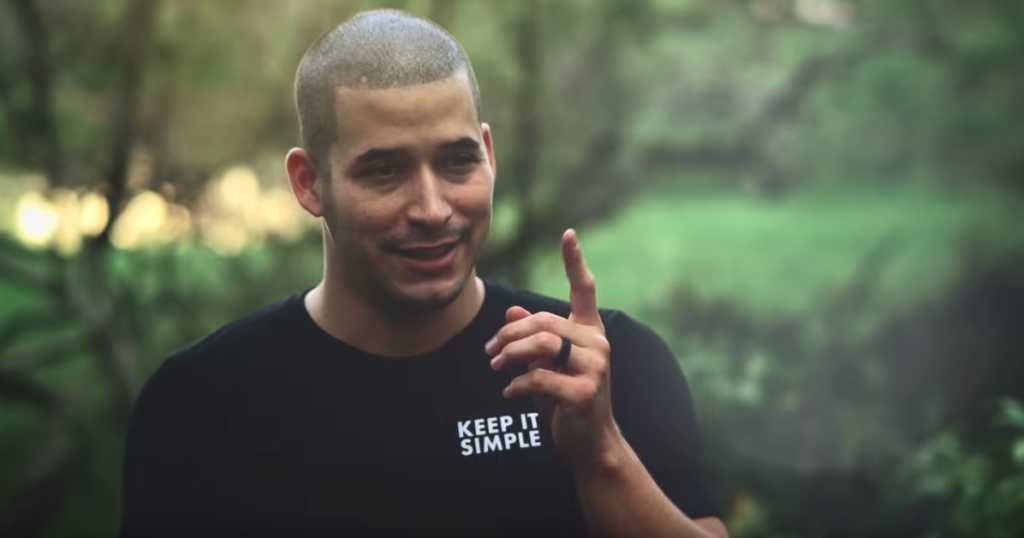Do more. Accomplish more. Buy more. Post more.
Society relentlessly beckons us to always push for more. New York Times Bestselling Author Jefferson Bethke, however, is on a mission to help fight a common problem that most people aren’t even aware is a problem: our daily hustle.
He spoke with Faithwire recently about his new book: “To Hell With the Hustle: Reclaiming Your Life in an Overworked, Overspent, and Over-Connected World.”
Continue reading below, or WATCH:
Technology has been a great blessing to society but it’s also come with a heavy price tag. In the midst of virtually unlimited possibility, as a culture, we’ve succumbed to the constant need for “more” success, stuff, accolades, comparison, etc — and in return, we’ve gained mostly more anxiety, depression, stress, and chaos.
The big promise of the internet was that it would make our lives easier. It’d be easier to work, we’d get done faster, etc. In many ways, life has become easier — take Amazon Prime for example. Saves so many trips to the store! But our workdays were supposed to become easier, instead, we simply work more.
Bethke, who has created countless viral videos on YouTube, calls out this seemingly insatiable appetite we have for business and more. And he’s not just doing so to bark at people — it’s something he was guilty of as well and says was the inspiration behind the book.
“It was born out of personal need,” Bethke explained to Faithwire Managing Editor Dan Andros. “We (he and his wife) had just gone through our 20’s, and the usual benchmarks of getting married, getting a house, getting a job you like. We had started reaching some of these benchmarks and then looking at what was in our hands and saying, ‘man this doesn’t seem to be producing what we wanted to produce,’ Bethke explains, saying they had been hoping instead for “more purpose more meaning more depth more life.”
After searching Scripture, Bethke says he began to note something about Jesus that few people seem to dwell on, an observation that’s certainly relevant today with our busy lifestyles.
“What I came back to in the Scriptures, it seems clear that it’s ok to do all the right things — but there’s also another part of the puzzle that we don’t talk about: Jesus gives us a pace, a different pace, a different cadence, a different way to live,” Bethke said.
“That’s the significant missing piece in our culture that’s allowing all the other things to not really have much vitality and life in them. Because if you’re not doing them at the spirit and pace and cadence of Jesus then you’re still doing them at the culture’s timetable of the hustle and the hurry. That corrodes and eats away at anything good you might be doing in the first place.”
It’s a refreshing take in a culture that seems to almost idolize, at times, business. Bethke mentions during the interview that people seem to wear their business as a badge of honor, as a validation of sorts, to build up their own self-worth.
“Technology is a net positive if we can put it in its place,” Bethke says, explaining that although there are great positives to a connected world, individually it can weigh us down, and ultimately, it can’t provide what we truly crave as human beings. “It can’t give us true meaning. It can’t give us true community. It can’t give us true connection,” he said.
Bethke went on to explain that we as humans tend to jump all-in on new products and technologies, only to find out if there are consequences decades later on. “We haven’t fully seen what it’s done to us.”
“What technology does, it fragments us and breeds tribalism. It’s actually been proven it’s difficult to have empathy if the person isn’t in front of you. Most of us are not that hard-hearted, but the internet takes all of that away. That’s where you start getting into some serious concerns.”
In his new book, “To Hell With the Hustle” Bethke lays out some practical and common-sense alternatives to the busy lifestyle that we as Christians would be wise to follow.
Bethke’s hope is that people will honestly evaluate their lives and see where they are chasing down things that really don’t serve a greater purpose in our lives, and replace those empty pursuits with those that are eternally rewarding.



